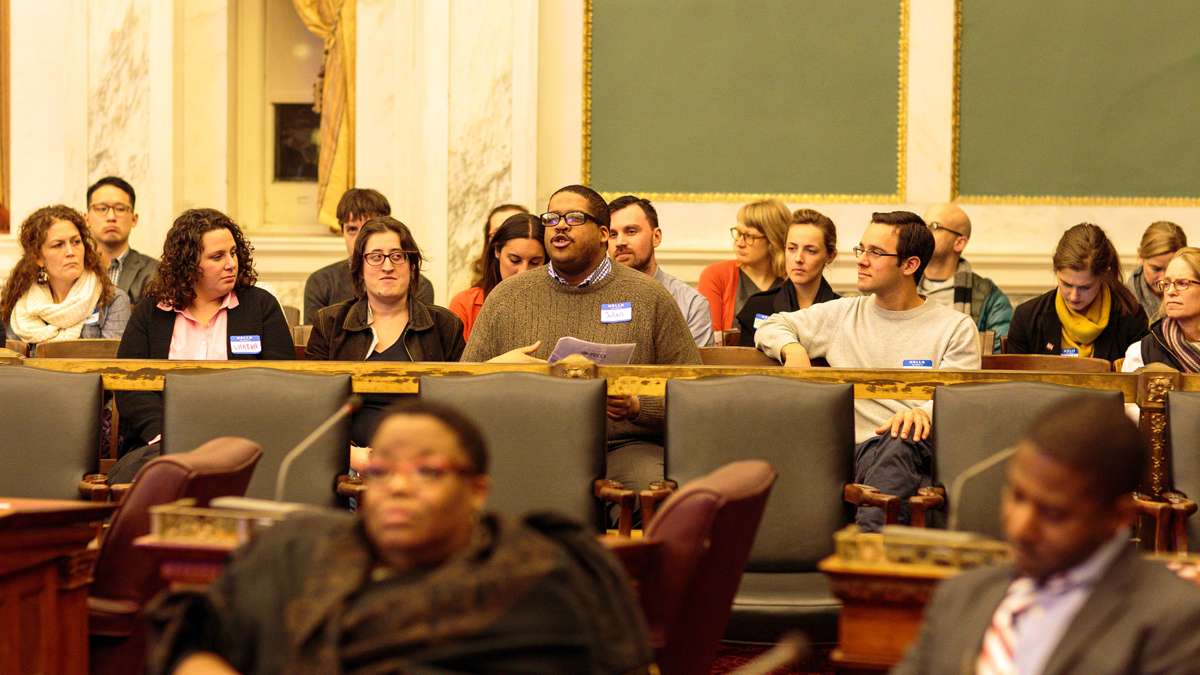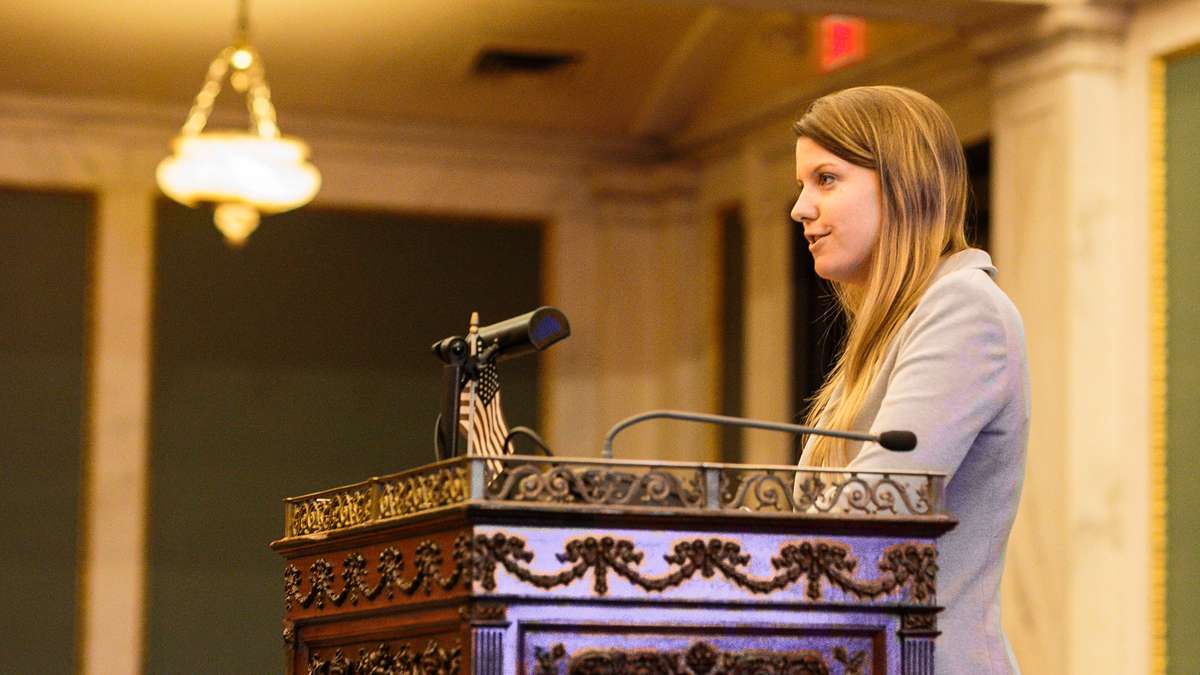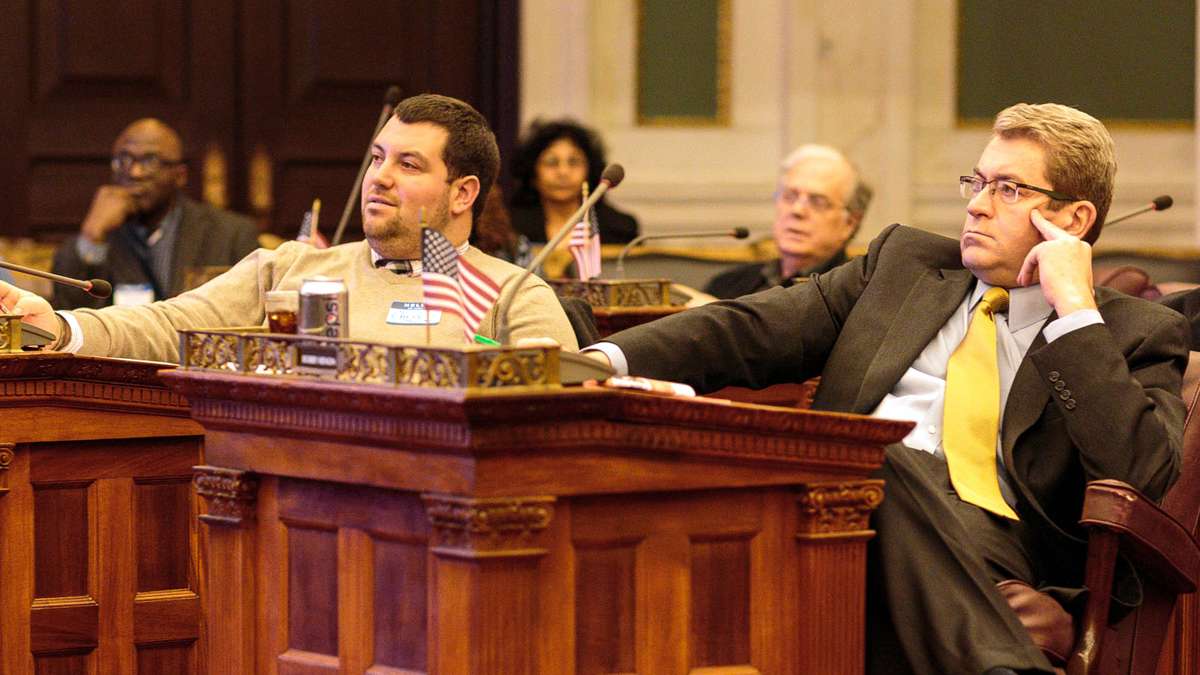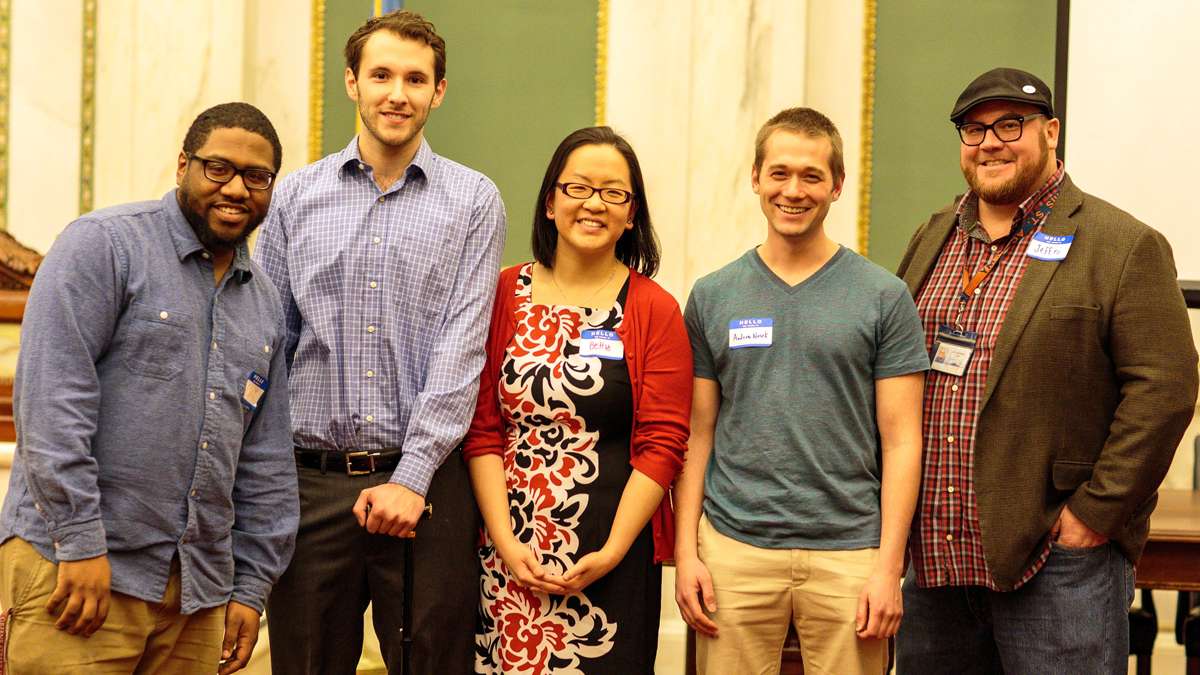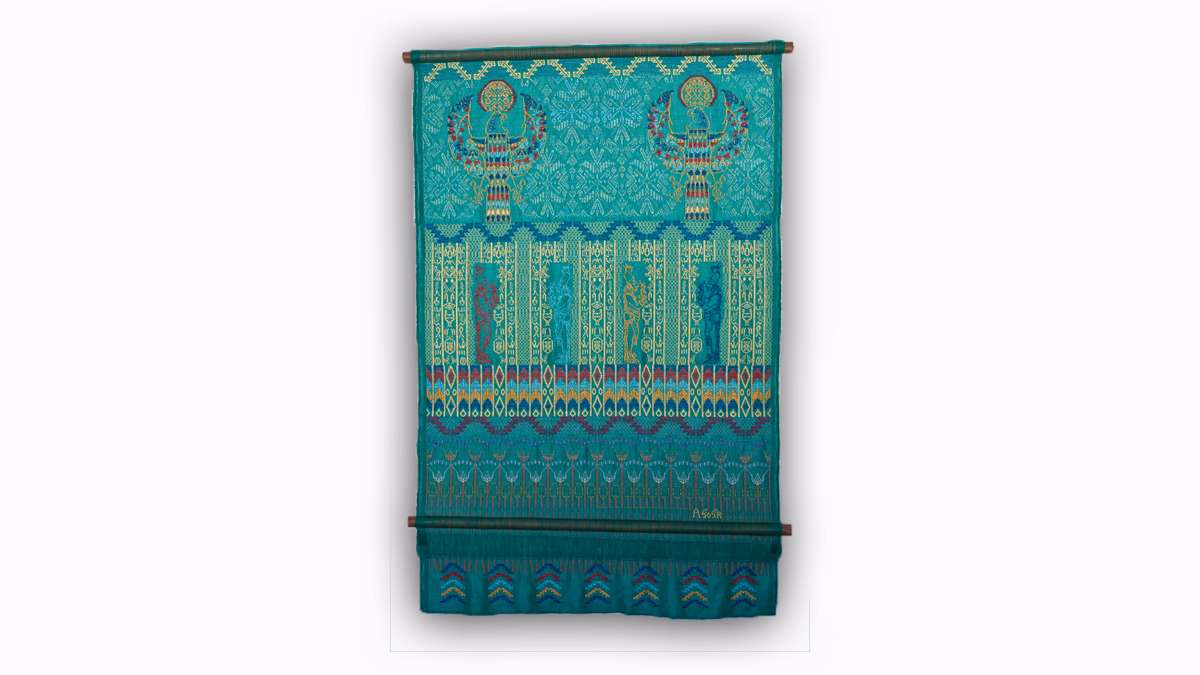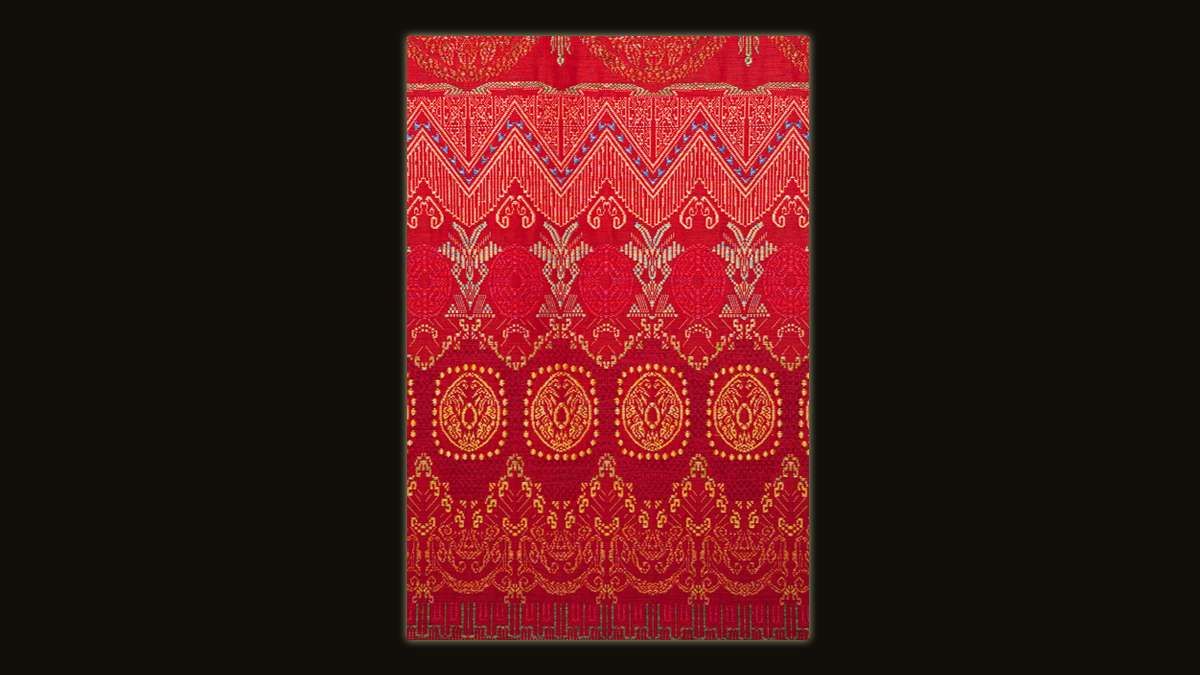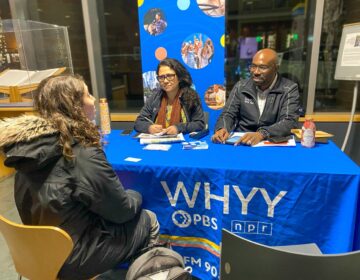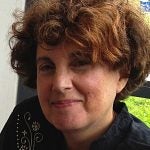Princeton Public Library weaves in theme of immigration
Setting up a loom is extremely complicated. It involves math, mapping out the design on graph paper, and an understanding of color and the language of spools and cones, warp and weft. Once it’s fully loaded, weaving on a loom is physically taxing. That’s why weavers in Guatemala often work as a team.
Armando Sosa learned weaving by watching and helping his father and grandfather. What set his family’s work apart from others were the intricacies of design. In 1994, Sosa emigrated from the highlands of Guatemala, where 90 percent of the men were weavers, settling in Hopewell, where he lives with fine art photographer and art instructor Karen McClean. The Princeton Public Library is exhibiting the weavings of Sosa on the second floor, along with works by his students from the Arts Council of Princeton, through March. Also on view are photographs by Guatemala native Hugo Navarro, from his “Fishing for a Dream” portfolio. Co-sponsored by the library and the Arts Council of Princeton, the exhibit is part of the “Currents: Conversations that Matter” series that begins this winter, with a focus on immigration.
Sosa employs symbols and images derived from dreams and memories of traditional icons and figures, both religious and secular – some dating back to his Mayan heritage, others to memories of a Central American childhood. Additional visual influences include African textiles, European jacquard patterns and Renaissance tapestry.
He weaves on two looms he built himself. The larger, 6-by-6-by-8 feet, has 49 harnesses and 1,360 threads across. He weaves with silk, mercerized cotton and metallic threads. Look and you may not see double peacocks, figures reaching up for fruit supported by pairs of dogs, angels reaching down to protect pairs of deer, and pairs of pelicans – signs on the wall help to find these.
Navarro was born in Guatemala City in 1976 and grew up in New Jersey, where he began studying photography at Princeton High School – he honed his skills in the darkroom of the Arts Council of Princeton — and then at Rutgers University and Universidad del Valle in Guatemala City. He has worked for newspapers in Guatemala, where he lived from 2009 to 2011. These days he divides his time between Miami Beach, Florida, and northern New Jersey.
In 2013, Navarro went to the Pacific Coast of Guatemala to document the unregulated humpback whale watch industry and its environmental impact. He was interested in the potential for ecotourism in the underdeveloped and poverty-stricken region. Due to poor weather conditions, he was unable to complete his objectives but instead became intrigued by the fishermen who went out every day – were swallowed by the sea, as he describes it – to provide for their families, and the “dignified acceptance of their reality: to live poor and die.” It is no wonder that many seek coyotes to help them make the treacherous and risky journey to come into the U.S. without a visa, he points out.
Through this exhibit, film screenings, readings, distinguished speakers and community dialogues, the library will explore immigration issues relative to Princeton, with its large immigrant community.
Wednesday, Feb. 4, at 7 p.m., the library will screen “Documented,” chronicling the journey of Pulitzer Prize-winning journalist Jose Antonio Vargas’s childhood journey from the Philippines to America, his work as an immigration reform activist, and his reconnection to his mother after not seeing her in more than 20 years. In 2011, Vargas outed himself in The New York Times as an undocumented immigrant.
Wednesday, Feb. 25, 7 p.m., Elisa Neira of Princeton Human Services will moderate a non-partisan discussion about immigration issues that pertain to Princeton.
Thursday, March 5, 7 p.m., photographer Hugo Navarro and weaver Armando Sosa will talk about their work.
Tuesday, March 10, author Christina Henriquez will discuss her novel, “The Book of Unknown Americans,” about immigrants and their neighbors in a dingy Delaware apartment building. Central to the story is the love that develops between their children.
Wednesday, March 11, 7 p.m., author Jacqueline Bhabha will discuss her book, “Child Migration and Human Rights in the Global Age,” an exploration of the complex challenges facing children and adolescents who move to join their families, who are moved to be exploited and move simply to survive.
_______________________________________________
The Artful Blogger is written by Ilene Dube and offers a look inside the art world of the greater Princeton area. Ilene Dube is an award-winning arts writer and editor, as well as an artist, curator and activist for the arts.
WHYY is your source for fact-based, in-depth journalism and information. As a nonprofit organization, we rely on financial support from readers like you. Please give today.


